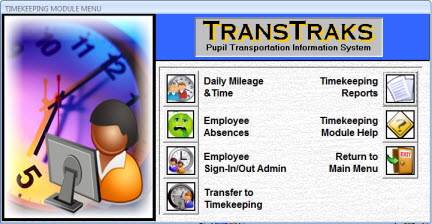
As we only focused on RCTs, we incorporated a sensitivity and precision-maximizing RCT filter in our search strategy. To enhance quality, the electronic search strategy was reviewed according to Peer Review of Electronic Search Strategies 14 by a librarian who specialized in systematic reviews. We searched PubMed, as well as Embase, CINAHL, and PsycInfo via Ovid.
#Timely communication ctmr tool hospital free
We used a comprehensive search strategy consisting of a combination of subject headings and free words. Search Methods for Identification of Studies

We were especially interested in the association of communication interventions with readmission to hospital, adherence to treatment regimens, and patient knowledge 30 days after discharge. In this study, we performed a systematic review and meta-analysis of randomized clinical trials (RCTs) that examined the effect of communication interventions in medical patients at hospital discharge on patient-relevant outcomes. Still, there is insufficient evidence that improving discharge communication results in lower readmission rates and other patient-relevant outcomes. 12 While several factors influence the risk of hospital readmissions, shortcomings in the education of patients at hospital discharge may be one of the main modifiable factors. 11 This has led medical authorities to look for interventions to improve the transition of care and penalize hospitals for readmission. 9, 10 Unplanned readmissions costs are estimated at $20 billion in the United States annually. According to the US national health insurance program, Medicare, 15% of patients discharged from the hospital are readmitted within 30 days, and 1 in 4 of those readmissions is potentially preventable. Unplanned hospital readmissions may indicate poor quality of care. 4, 5 Shortcomings in the education of patients before hospital discharge have been associated with higher risk for hospital readmission 6 and mortality. 3 Previous studies found that a clinically relevant proportion of patients being discharged from hospitals are not able to recall their diagnoses and discharge instructions. 1, 2 Low health literacy, anxiety, cognitive impairment, or language barriers might further limit patients’ ability to understand medical information shared at discharge, resulting in treatment failures. However, patients may not understand or remember the information provided, resulting in confusion, misinterpretation and mismanagement of treatment regimen. At discharge, health care practitioners need to explain critical information, such as patients’ diagnoses and their treatment, while integrating patients’ conditions, perceptions, and needs at the same time. Hospital discharge is a multidisciplinary process during which patients receive complex medical information and follow-up instructions. She was compensated for this contribution. Role of the Funder/Sponsor: The funders had no role in the design and conduct of the study collection, management, analysis, and interpretation of the data preparation, review, or approval of the manuscript and decision to submit the manuscript for publication.Īdditional Contributions: Hannah Ewald, PhD (University Medical Library, University Basel, Basel, Switzerland), reviewed our search strategy and provided input for the final manuscript. 10001C_192850/1C_182422) and the Swiss Society of General Internal Medicine.
Statistical analysis: Becker, Zumbrunn, Hunziker.Īdministrative, technical, or material support: Müller, Amacher.Ĭonflict of Interest Disclosures: None reported.įunding/Support: This work was supported by the Swiss National Foundation (grant Nos.

Dr Becker and Mr Zumbrunn contributed equally as co–first authors.Ĭoncept and design: Becker, Zumbrunn, Hunziker.Īcquisition, analysis, or interpretation of data: All authors.ĭrafting of the manuscript: Becker, Zumbrunn, Hunziker.Ĭritical revision of the manuscript for important intellectual content: All authors.
#Timely communication ctmr tool hospital full
Corresponding Author: Sabina Hunziker, MD, MPH, Medical Communication, Department of Psychosomatic Medicine, University Hospital Basel, Klingelbergstrasse 23, CH-4031 Basel, Switzerland ( Contributions: Drs Becker and Hunziker had full access to all of the data in the study and take responsibility for the integrity of the data and the accuracy of the data analysis.


 0 kommentar(er)
0 kommentar(er)
